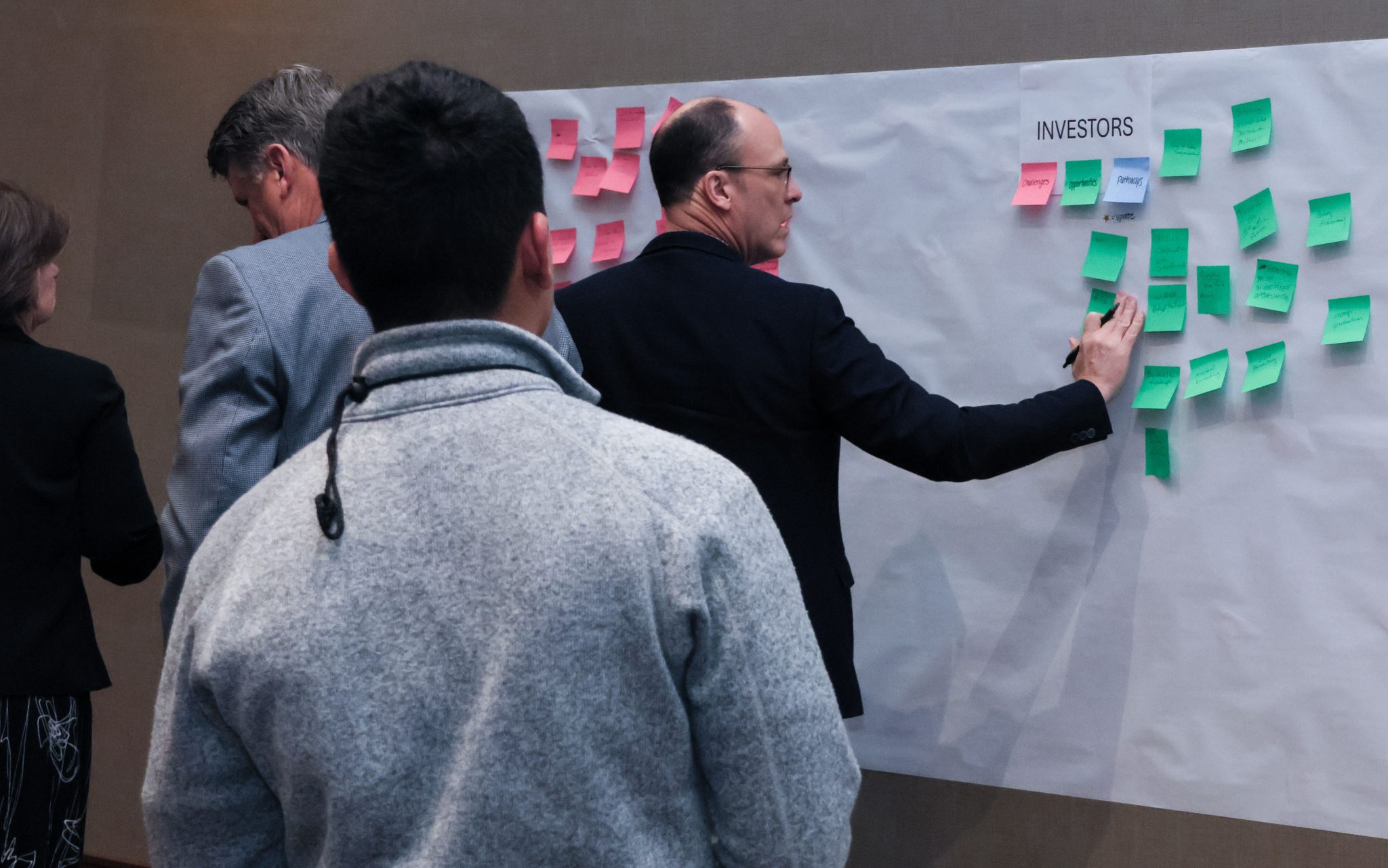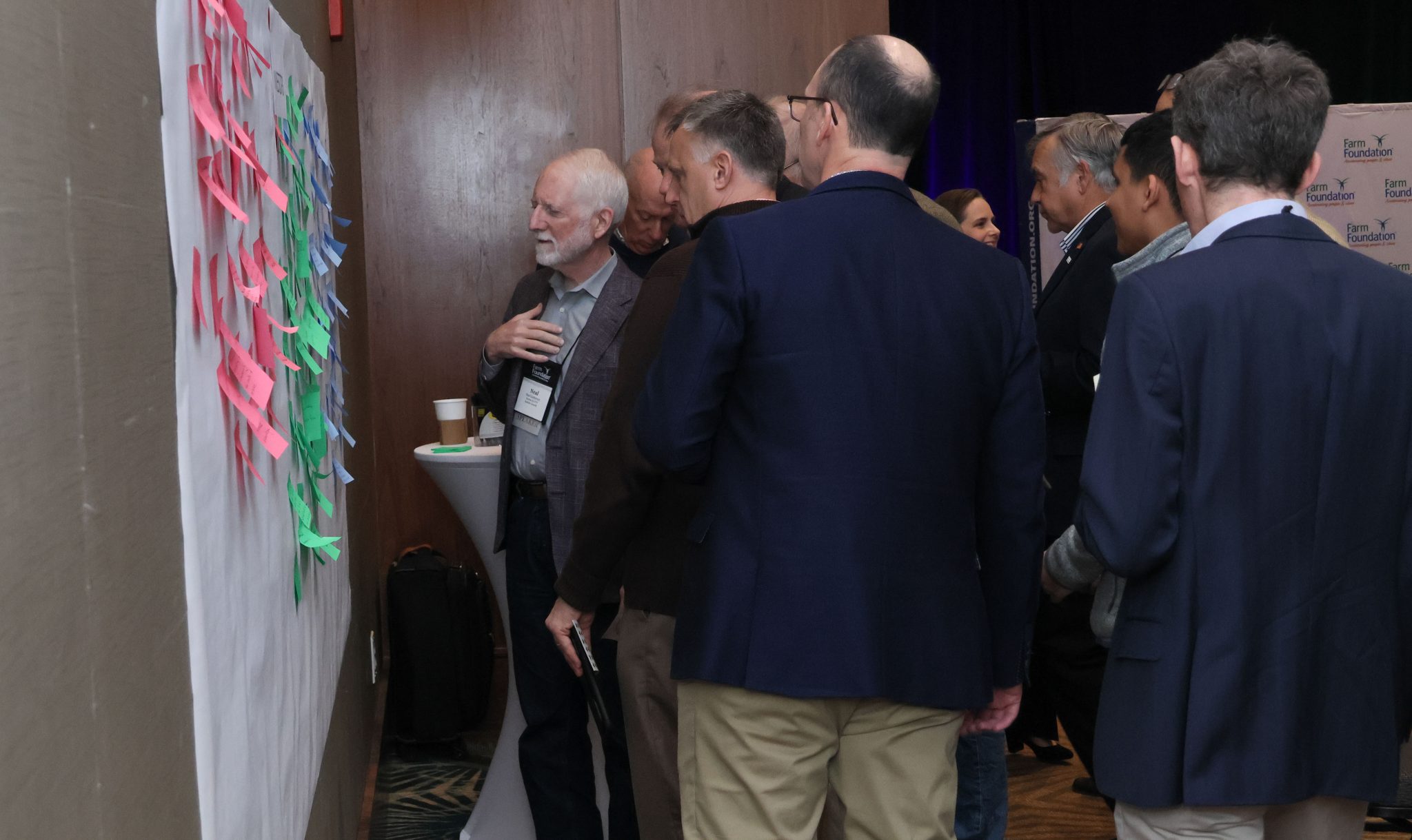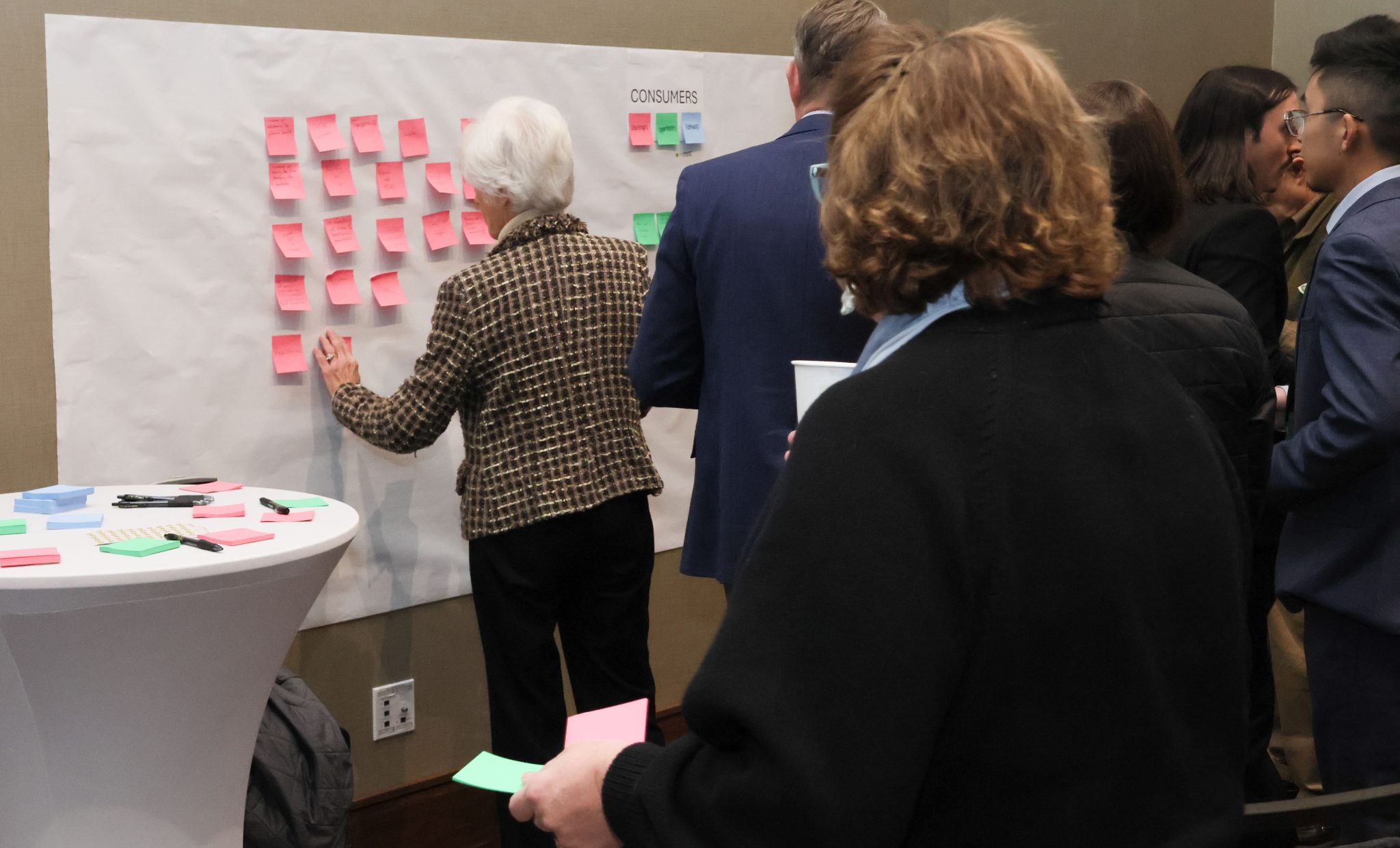Farm Foundation, PepsiCo and the PepsiCo Foundation Partner to Support Next Generation Farmers Program to cultivate future agricultural leaders.
Farm Foundation, in collaboration with PepsiCo and the PepsiCo Foundation, is proud to announce the launch of the Next Generation Farmers Program, an initiative designed to equip young agricultural entrepreneurs with the skills, education, and resources needed to thrive in today’s farming sector.
Recognizing the growing challenges young farmers face – including limited access to education and training – the Next Generation Farmers Program will provide vital scholarships, training, and mentorship opportunities. This initiative is intended to serve as a critical steppingstone in helping the next generation of U.S. farmers build strong, sustainable businesses to feed the world for years to come.
Gregg Halverson is a farmer from North Dakota who grows potatoes for Frito-Lay and has a long-held affiliation with Farm Foundation. Halverson emphasizes the benefits this program can have for the agricultural community in the U.S. “I believe there is a lot of interest and passion for agriculture among our young people, but the high barriers to entering this field can be discouraging. The programs that Farm Foundation and the PepsiCo Foundation are building will have a direct impact on helping these young agriculturists gain a footing in the production ag sector.”
As a key supporter of this initiative, the PepsiCo Foundation has committed to a multi-year financial investment, furthering its efforts to support the agricultural community. This funding will help provide essential resources to young farmers via the Next Generation Farmers Program, fostering long-term success in an increasingly demanding industry.
“By investing in the future of agriculture, we are ensuring that young farmers have the tools and guidance they need to build viable and resilient businesses,” said Shari Rogge-Fidler, President and CEO at Farm Foundation. “We are proud to partner with the PepsiCo Foundation to drive meaningful change and support the next generation of agricultural leaders.”
“The PepsiCo Foundation’s work focuses on the creation of sustainable and innovative solutions, including ways to support a more resilient, sustainable agricultural system to help feed the world’s growing population,” said C.D. Glin, President of the PepsiCo Foundation and Global Head of Social Impact at PepsiCo. “We are proud to partner with the Farm Foundation once again to further our pep+ (PepsiCo Positive) agenda and to support the next generation of farmers by providing the tools and resources they need to succeed.”
This latest initiative builds on a Farm Foundation, PepsiCo, and the PepsiCo Foundation collaboration, Field to Future, a two-year cohort program designed to create career opportunities within the agriculture industry at large.
Farm Foundation encourages other stakeholders to prioritize building a future for farmers. Through donations and advocacy, individuals and organizations can play a pivotal role in shaping the future of American agriculture and empowering young farmers with the knowledge, resources, and networks necessary for success.
For more information about the Next Generation Farmers Program and how to get involved, please visit https://farmfoundation.org/nextgenfarmer or contact Tim Brennan, Vice President of Programs and Strategic Impact at Farm Foundation at tim@farmfoundation.org
About Farm Foundation:
About Farm Foundation®: Farm Foundation is an accelerator of practical solutions for agriculture. Our mission is to build trust and understanding at the intersections of agriculture and society. We accomplish this by leveraging non‐partisan objective dialogue, information, and training, catalyzing solutions, and creating multi‐stakeholder collaboration. Our vision is to build a future for farmers, our communities, and our world.
About PepsiCo:
PepsiCo products are enjoyed by consumers more than one billion times a day in more than 200 countries and territories around the world. PepsiCo generated nearly $92 billion in net revenue in 2024, driven by a complementary beverage and convenient foods portfolio that includes Lay’s, Doritos, Cheetos, Gatorade, Pepsi-Cola, Mountain Dew, Quaker, and SodaStream. PepsiCo’s product portfolio includes a wide range of enjoyable foods and beverages, including many iconic brands that generate more than $1 billion each in estimated annual retail sales.
Guiding PepsiCo is our vision to Be the Global Leader in Beverages and Convenient Foods by Winning with pep+ (PepsiCo Positive). pep+ is our strategic end-to-end transformation that puts sustainability and human capital at the center of how we will create value and growth by operating within planetary boundaries and inspiring positive change for planet and people. For more information, visit www.pepsico.com, and follow on X (Twitter), Instagram, Facebook, and LinkedIn @PepsiCo.
About the PepsiCo Foundation:
The PepsiCo Foundation, the philanthropic arm of PepsiCo, invests in the essential elements of a sustainable food system with a mission to support thriving communities. Working with non-profits and experts around the globe, we’re focused on helping communities obtain access to food security, safe water and economic opportunity. We strive for tangible impact in the places where we live and work—collaborating with industry peers, local and international organizations, and our employees to affect large-scale change on the issues that matter to us and are of global importance. Learn more at www.pepsicofoundation.com. Follow us on Instagram and LinkedIn.
The post Farm Foundation, PepsiCo and the PepsiCo Foundation Partner to Support Next Generation Farmers Program to cultivate future agricultural leaders. appeared first on Farm Foundation.




 (JDOC) at John Deere. He leads a group of product managers responsible for key features within the JDOC, with a specific focus on live remote monitoring and equipment & agronomic analysis capabilities. As a software engineer, Kevin has built some of the foundational features of the JDOC program. Throughout his 15-plus years at John Deere, he has had various product management roles of increasing responsibility, where he has focused on the JDOC’s monitoring and analysis capabilities. Kevin earned a bachelor’s degree in computer science from Bradley University and a master’s in business administration from the University of Iowa.
(JDOC) at John Deere. He leads a group of product managers responsible for key features within the JDOC, with a specific focus on live remote monitoring and equipment & agronomic analysis capabilities. As a software engineer, Kevin has built some of the foundational features of the JDOC program. Throughout his 15-plus years at John Deere, he has had various product management roles of increasing responsibility, where he has focused on the JDOC’s monitoring and analysis capabilities. Kevin earned a bachelor’s degree in computer science from Bradley University and a master’s in business administration from the University of Iowa.